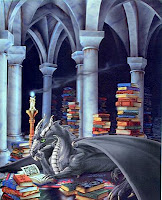 Just as writers get ideas from all around us, we also are influenced by everything we come into contact with. I dedicated a portion of my own personal blog entries to this phenomenon, which I affectionately call the Input/Output modes. Anything we take in inevitably affects what comes out.
Just as writers get ideas from all around us, we also are influenced by everything we come into contact with. I dedicated a portion of my own personal blog entries to this phenomenon, which I affectionately call the Input/Output modes. Anything we take in inevitably affects what comes out.
As a writer, I talk a lot about other writers and books that influence me, but sometimes I forget how much the other categories of art inspire me, as well.
Music is a powerful one. When I listen to instrumental music, new worlds unfold inside my mind, and I envision scenes to fit with that music. When I was a kid, I used to lie in bed listening to my favorite movie soundtracks and make up new stories to go with them. Hell, I still do that sometimes. For some novels, I’ll create a Pandora station based around certain songs or bands for a certain mood. For others, I will pick one specific instrumental movie soundtrack and listen to it over and over, which shapes my story quite a bit, inspiring scenes I wouldn’t have otherwise fathomed.
Visual arts – paintings, drawings, sculptures, and photographs – also trigger stories in me. I have always struggled with setting and description. I have a vague idea of what a person or place looks like, but the details are usually missing in my writing. Visual representations help me really consider the details. Sometimes a picture will really speak to me and I’ll be driven to write a story that fits the scene. I’ll want to tell the story of how that domed city on the cliff came to be, or why the sky has inexplicable green miasma in it, or where that dragon got all of those books. Then characters will start to wander around inside the images to answer all of these questions for me.
The arts aren’t the only other medium that influence my writing, however.
